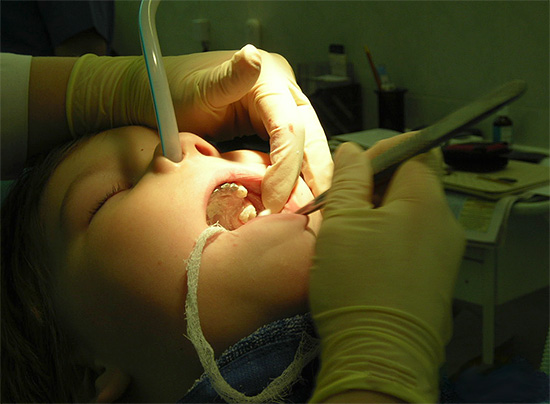
Anesthesia, or otherwise, general anesthesia, was rarely used in dentistry before, because there was a strong opinion that discomfort, especially in the treatment of “with an injection” (with local anesthesia), could be tolerated. However, local anesthesia used in the treatment and extraction of teeth does not always meet the requirements of quality anesthesia for each individual person - for some people, the anesthetic may simply not have the desired effect.
It is then that tooth extraction under general anesthesia comes to the rescue, because during this often traumatic procedure, the pain without taking appropriate measures can be very strong ... In addition, for certain situations there are quite strict indications prohibiting the use of local anesthesia in favor of anesthesia.
Anesthesia is also in demand in the treatment of young children who are physically unable to sit in a chair for a long time and, moreover, may receive mental trauma due to excessive fear during the procedure.
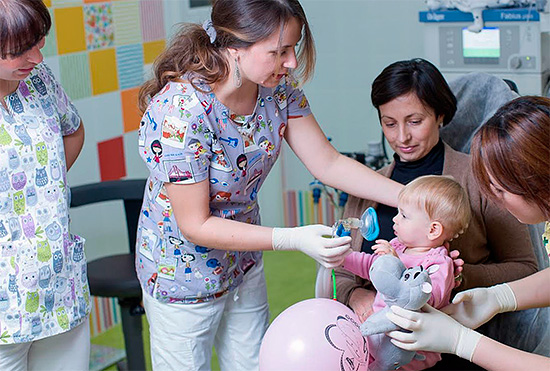
It is interesting
Anesthesia is a condition in which a disconnection of consciousness occurs and a kind of sleep occurs with the relaxation of skeletal muscles and the disconnection of a number of reflexes. During anesthesia, pain sensitivity disappears due to inhibition of the central nervous system.
Synonyms of the word "anesthesia" are general anesthesia and general anesthesia. The phrase “general anesthesia” has taken root by mistake, although professional doctors don’t say that.
Currently, under anesthesia, tooth extraction, treatment, and implantation can be performed. There are even specialized dental clinics that provide similar services. However, it must be understood that, given the complex nature of general anesthesia, the price of any manipulation performed under general anesthesia will be higher than when using local anesthesia.
Next, we will talk in detail about tooth extraction under general anesthesia, examining the positive and negative points when choosing such an anesthesia option. And also touch on the prices for this procedure in modern dental clinics.
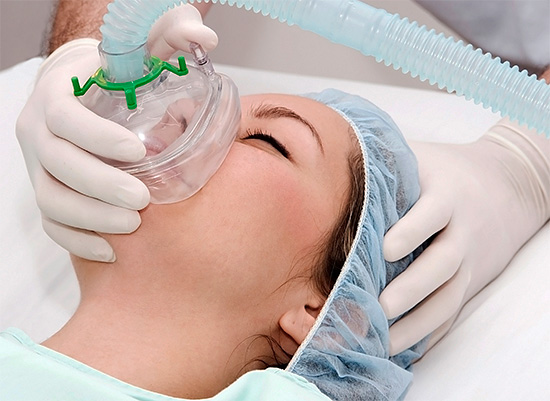
So, in order to carry out tooth extraction under anesthesia, the dentist together with the anesthetist must first do some work: by monitoring the health and examining the results of the patient’s tests, they determine whether there is a possibility of general anesthesia, and also measure all possible risks to health (and life! ) person ...
Indications for tooth extraction under general anesthesia
Generally speaking, the use of anesthesia for the treatment and removal of teeth covers a negligible percentage of people who turn to dentists for help. First of all, this is due to strict indications for anesthesia: a competent doctor, even working in a clinic that has everything necessary for anesthesia, will not always take up a risky event just because of a frantic desire of a person to fall asleep for a while, feel nothing.
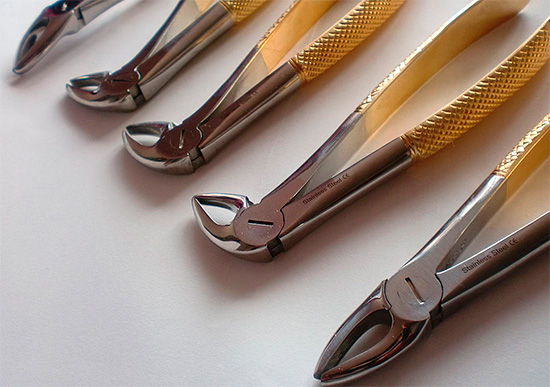
We list the main indications for the use of anesthesia for tooth extraction:
- the large volume and invasiveness of the upcoming surgical intervention (for example, from x-rays, you can sometimes anticipate complex removal of wisdom teeth in advance);
- the patient is allergic to drugs for local anesthesia (“gum injections”);
- pronounced gag reflex, often severely interfering with the operation to remove the tooth;
- panic fear of the patient before dental intervention;
- the presence of mental disorders in the patient (oligophrenia, complications of meningitis, etc.)
- interventions in young children.
As for children: there are many cases where parents simply cannot cure the baby’s teeth, as he does not allow the doctor to do this, as a result of which the disease is neglected. As a result, anesthesia can become one of the options for an alternative choice of anesthesia in pediatric dentistry.
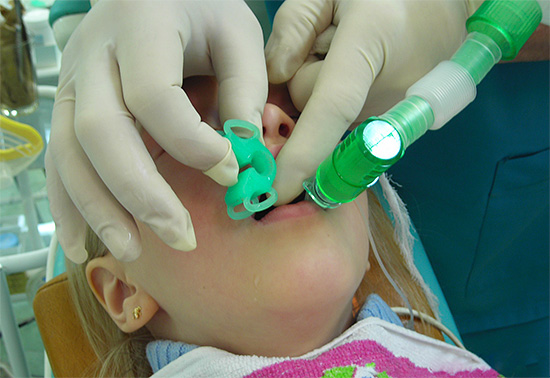
It is interesting
Perhaps the main criterion for tooth extraction under general anesthesia is the presence of a professional anesthesiologist-resuscitator. It is difficult to overestimate his role, since the patient’s life is in the literal sense in the hands of this doctor. After all, it is the anesthetist who selects the necessary drugs for anesthesia, calculates their dosage, monitors the condition of the person during the entire operation and even after it. In the event of force majeure situations, when the patient stops breathing and cardiac activity, it is the anesthetist-resuscitator who pulls him out of the literal world. Fortunately, such unusual situations are very rare.
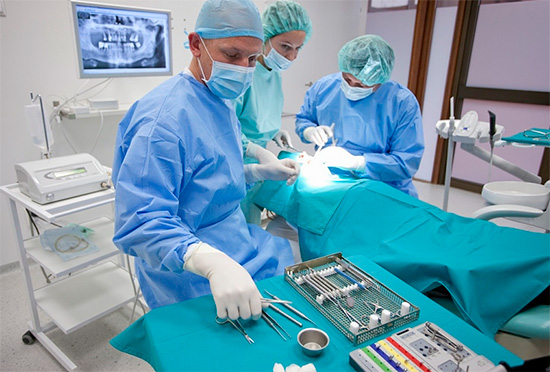
The negative sides of general anesthesia
In order to remove a tooth in a planned manner under general anesthesia, the patient will first need to undergo an examination so that the doctor can find out the concomitant and transferred diseases. That is, at least, you have to spend some time on this - and this is the first drawback of the procedure.
In addition, during such an examination, you may suddenly be unpleasantly surprised that anesthesia is, in general, contraindicated for you ...
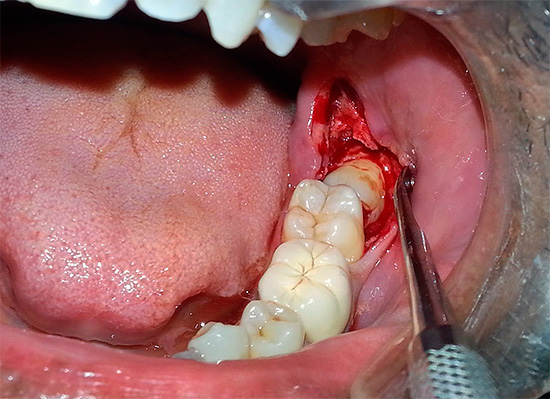
The main contraindications for anesthesia are:
- anemia;
- acute diseases of parenchymal organs;
- decompensated forms of cardiovascular failure;
- myocardial infarction, as well as post-infarction state up to 6 months;
- acute alcohol and drug intoxication;
- frequent attacks of epilepsy;
- long-term use of hormonal drugs;
- acute inflammatory diseases of the respiratory system;
- pneumonia;
- uncompensated form of diabetes;
- advanced form of thyrotoxicosis;
- full stomach;
- severe form of bronchial asthma;
- diseases of the adrenal gland (for example, pheochromocytoma, etc.).
If you ignore at least one of these contraindications, there are serious risks of complications during tooth extraction under general anesthesia. That is why, before the procedure, each patient must undergo a series of medical studies (ECG, laboratory tests).
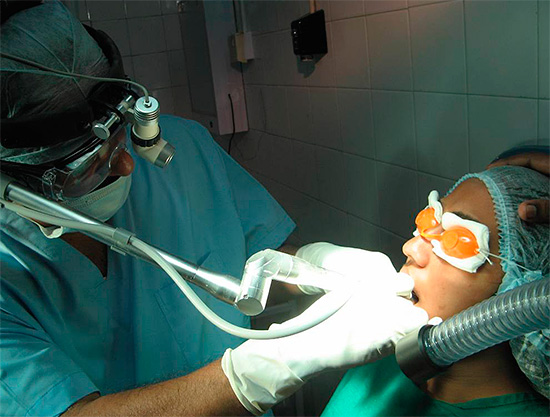
Further. It must be borne in mind that the treatment and removal of teeth under anesthesia is generally more difficult to tolerate than with other types of pain relief - and advertising will not tell you about this. The most common side effects of anesthesia are:
- increase in blood pressure;
- increased heart rate;
- cramps
- bronchial cramps;
- laryngeal spasm;
- difficulty breathing
- vomiting
- temporary memory loss;
and some others.
The negative points do not end there.
Before anesthesia, there is a preoperative preparation procedure (for example, do not eat or drink anything). Certain rules should be observed after anesthesia, which sometimes complicates a person’s life and creates some problems.
As noted above, tooth extraction under anesthesia is associated with the mandatory need for a team of doctors in the clinic: dentists, anesthetists, resuscitators, as well as nurses. It is also important that the clinic has special medical equipment, tools and drugs for entering into a state of sleep. All this directly affects the price of the service - naturally, in the direction of its increase.
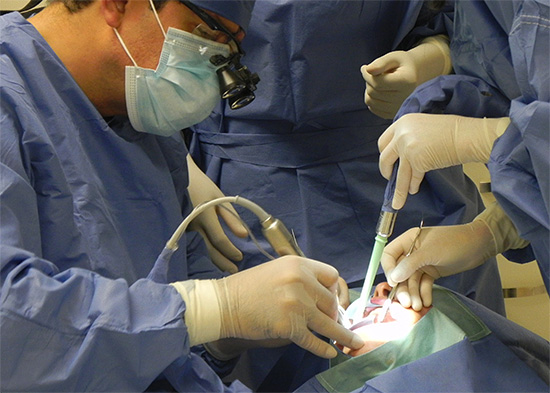
Moving on. Many experts believe that anesthesia greatly complicates the work of the doctor. First, items of equipment (such as a breathing tube) can interfere with the dentist's ability to freely manipulate the oral cavity.
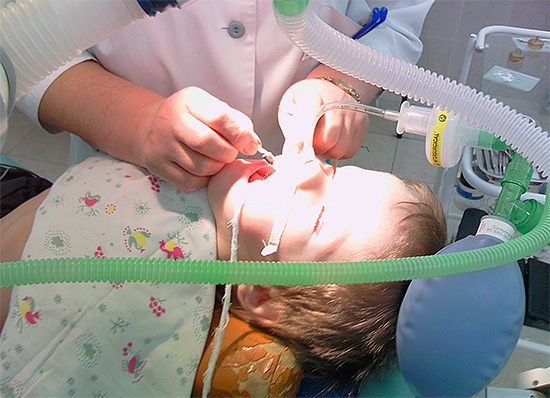
Secondly, the patient, immersed in deep sleep, cannot follow the doctor’s instructions, making his work more convenient (at least elementary to open his mouth wider so that there is better access to the problem tooth). Therefore, the doctor is forced to constantly change the position of his body to reduce the load on the muscles, which leads to rapid fatigue. But we all understand that, for example, with a long and difficult removal of a wisdom tooth, a doctor’s fatigue will not add to his work of quality: somewhere his attention will decrease, somewhere he may choose a faster and easier, but also more traumatic option for the procedure . There are many opportunities ...
Practice shows that the presence of the listed difficulties in tooth extraction under general anesthesia often not only does not reduce a person’s anxiety before the next dose, but, on the contrary, greatly increases fears. That is why you should not rely on anesthesia as a means of reducing the fear of dental surgery. He will relieve pain, but hardly from fear.
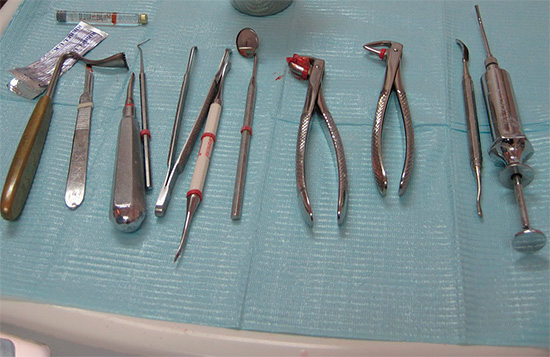
Does the brain suffer from anesthesia and how quickly all its functions are restored
Despite the fact that it is possible to remove a tooth under general anesthesia without any pain, however, many people who are even very afraid of the upcoming torment are not in a hurry to resort to such a radical method of pain relief. And the reason is the popular belief that with general anesthesia the human brain suffers to some extent - memory worsens, regular headaches appear, sleep worsens. Is this really so and is it worth believing similar reviews of those people who have already experienced this on themselves?
Thanks to clinical trials, studies, observations, and taking into account the feedback from a huge number of patients, specialists evaluated how the treatment and extraction of teeth under general anesthesia affects the human brain. A number of reputable doctors agree that there is no and cannot be a connection between anesthesia and memory impairment after it.
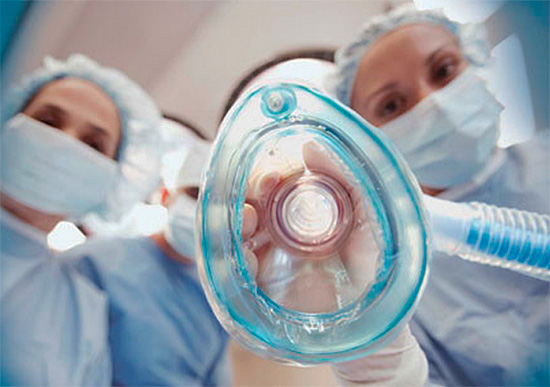
However, there is an opinion different from this statement, which has clear justification.
To remove teeth under anesthesia, various techniques and drugs are used. Methods of administering funds and their duration of action differ. Short-term anesthesia with an uncomplicated short operation with a low probability affects memory (and this is confirmed by the statistics of reviews), which can not be said about the long and complex manipulations performed during deep anesthesia.
In addition to obvious brain disorders during respiratory arrest and cardiac activity (this is very, very rare), there may also be temporary oxygen deficiency of the brain that is not visible to the anesthesiologist, which may well lead to disturbances in the functioning of brain cells and affect memory. In most cases, such violations are reversible and short-lived, but sometimes quite pronounced negative consequences are recorded, including with regard to memory. The appearance of such cases makes people afraid not even of anesthesia itself, but of its unpredictable consequences.
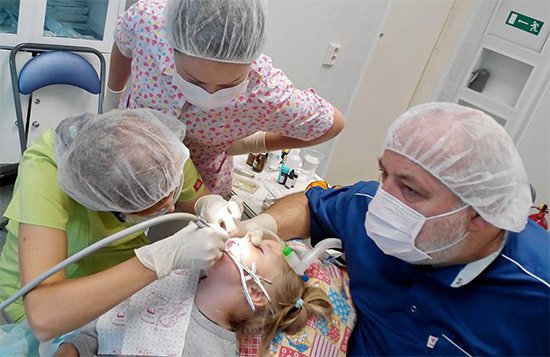
Feedback:
“I suffered anesthesia for the third time in the last 2 years. Before that, I hadn’t noticed anything particularly strange, except sometimes a difficult recovery of strength after withdrawing from anesthesia. After the last operation, I somehow managed to forget the name of my only daughter. You can’t imagine how many tears I cried from impotence, but I couldn’t remember in any way. Soon the memory returned, but a heavy mark in the soul remained. I did not think that anesthesia could bring so many problems. At the moment, I sometimes notice short-term memory lapses, so I plan to undergo a neurologist examination next week. ”
Maria, 56 years old, Sevastopol
The benefits of general anesthesia over local
Despite the negative aspects, anesthesia during tooth extraction has certain advantages over local anesthesia:
- The appearance of any sensitivity is excluded, since the whole procedure takes place with the consciousness turned off, therefore it is 100% painless.
- The possibility of the normal conduct of even serious and traumatic manipulations in patients who are panicky afraid of the dentist, as immersion in sleep removes the stress factor and panic.
- Exclusion of injuries caused by the patient. For example, even with local anesthesia, a person can prevent a doctor from performing tooth extraction in a quality manner, creating interferences that sometimes lead to accidental tissue injuries (first of all, it concerns people with mental disorders who are difficult to convince to sit still when it seems to them that the doctor doesn’t kill). Anesthesia completely eliminates the risks of such complications.
- The ability to conduct lengthy and complex operations to remove one or more teeth, especially in cases where the teeth have a complex structure and an incorrect position in the jaw. This is especially true. when removing the lower teeth of wisdom, since the structure and location of these teeth in the jaw is absolutely unpredictable.

- The provision of surgical care to children. Since for the premature removal of milk or permanent teeth in a child, anesthesia is required, general anesthesia can come to the rescue here. Without this, the child will interfere with the work of the doctor and, in addition, can easily get psychological trauma for the rest of his life and a persistent fear of a white coat. Even local anesthesia itself often leads children into shock when a “terrible” needle enters the gum, so the option of anesthesia before tooth extraction is often the only way to provide quality and painless help to the baby.
Feedback:
“Yesterday, the lower wisdom tooth was removed under general anesthesia. The operation lasted approximately 40 minutes, as I was informed. Doctors said that in the picture my tooth was rooted under the next one, so I had to cut it for a long time and take it out in pieces. I would certainly not have survived such a spectacle in my mind, and they put me to sleep well, so I did not hear or see anything. The only minus is the nasty scavenger from anesthesia, and there was a terrible dry mouth, as after a severe hangover, my head was buzzing for a couple of hours, but that's all behind. I am pleased that everything went well. "
Igor, Pskov
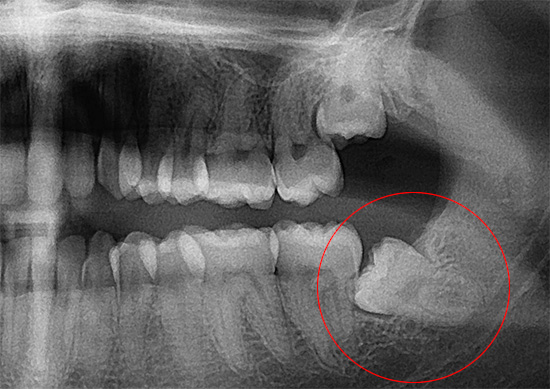
The cost of tooth extraction under anesthesia
Anesthesia is a deliberately expensive pleasure, except, perhaps, in emergency cases when doctors are obliged to urgently save a person’s life, for example, by removing teeth that interfere with a jaw after a serious injury under general anesthesia, according to indications for it. In other situations, one client’s desire to fall asleep and wake up with a Hollywood smile is not enough.
Dentists who make a deal with conscience and, for the sake of enrichment, agree, contrary to contraindications, to remove teeth under anesthesia for a price that is pleasant in every sense, sooner or later pay for their mistakes in the dock.
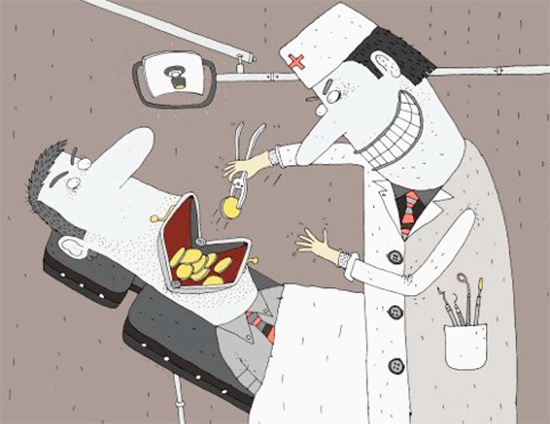
Due to the complexity of the equipment for anesthesia, the level of training for general anesthesia and the degree of possible risks, the cost of tooth extraction under general anesthesia is significantly higher than the price for a conventional tooth extraction under local anesthesia or, as the people say, an “injection”.
Feedback
“In addition to removing the tooth, I gave another 6,000 - it’s two hours of general anesthesia or minimal, but it can be done in an hour: this fact does not affect the price. When I woke up after anesthesia, it was as if I had visited a resort. I always choose expensive anesthesia only because of the fear of pain. ”
Julia, Moscow
Interesting video: is it safe to use anesthesia in dentistry
A good example of euthanasia of a child before dental treatment

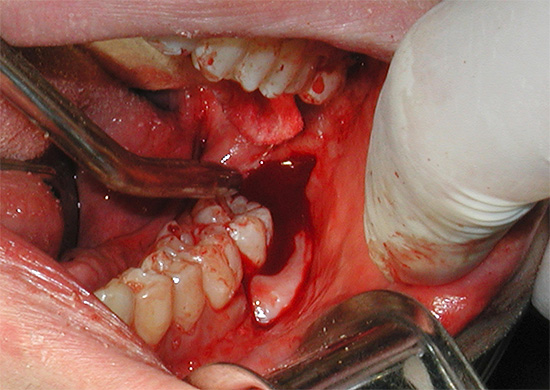
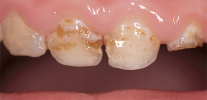
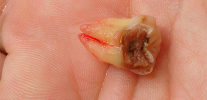
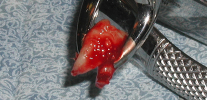
And if you remove 14 teeth, how much will it cost?
Good afternoon. Removing 14 teeth is a big stress for the body. Without good evidence, such an amount is not removed (for example, an indication for such an operation may be simultaneous basal implantation with advanced periodontitis, when the teeth are mobile and on the verge of loss).
As for the cost of the actual removal - for example, in our clinic the removal of 1 tooth costs 1,500 rubles. But, as I already noted, for a start it is important to understand whether it is really necessary to remove 14 teeth at once in your situation.
Hello, can you remove 11 roots at once?
Hello, Alena. Yes, the simultaneous removal of such a number of teeth in most cases is possible - if there are no contraindications for health reasons. Usually, a course of antibiotics is then prescribed.
Hello! I need to remove 6-7 teeth under general anesthesia. How much is it?
Hello Christine. The cost of tooth extraction depends on their category and the price list of the dentistry you intend to contact. The cost of anesthesia is also calculated separately. For example, we do not use anesthesia in our clinic, because it is harmful enough for the body (we use intravenous sedation under the supervision of an anesthetist-resuscitator). If you decide to contact our clinic, then we can calculate the full cost for you for a free consultation).